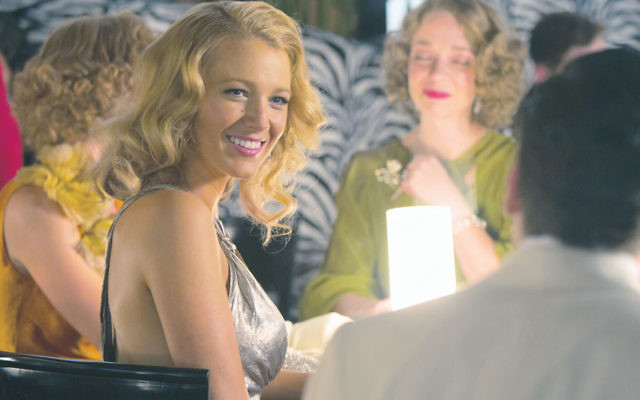Cannes showcase for Israeli films
Some of the best new Israeli films and documentaries that screened at the Cannes Film Festival and at Docaviv in Tel Aviv are bound for Australia later this year.
EDDIE Tamir loves the atmosphere at the bustling Cannes Film Festival, especially with the large contingent of Israeli filmmakers in attendance showcasing the boom in Israeli cinema.
The Melbourne cinema owner and co-director of the Jewish International Film Festival (JIFF) says that while this year’s Jewish-themed films were not as high profile as last year – when Natalie Portman’s A Tale of Love and Darkness, based on the early life of Israeli author Amos Oz, premiered at the festival and the Holocaust drama Son of Saul by Hungarian director Laszlo Nemes picked up awards on the way to its Oscar glory – there were still plenty of films and documentaries on offer from Israel.
“For the first time at Cannes the Israeli contingent had its own pavilion as part of a big presence,” says Tamir. “We are in the golden age for Israeli films and documentaries.”
Two Israeli films won prizes at Cannes – Or Sinai’s Anna won the Student Film competition in the Cinefondation section, and Asaph Polonsky’s One Week and a Day won the GAN Foundation Award in the Critics’ Week competition, collecting a 20,000 euro prize.
Evgenia Dodina stars in One Week and a Day as a mother whose son has just died, and the film chronicles how she and her husband (played by Shai Avivi) react to the death after sitting shiva. The mother returns to work immediately while the father stays at home and smokes what remains of his son’s medical marijuana.
The movie was developed in the Jerusalem International Film Lab at the Sam Spiegel School and received a rare standing ovation at Cannes.
“It’s a quirky, heartfelt film – very Israeli,” says Tamir, who plans to screen One Week and a Day at this year’s JIFF, which will be held in Sydney from October 26 to November 20, in Melbourne from November 2-27, Perth from November 10-20, Canberra on November 12-13 and November 19-20, Brisbane on November 12-13 and November 19-20, and Auckland on November 12-13 and November 19-20.
Another film that caught Tamir’s eye at Cannes last month was Personal Affairs, the debut feature by emerging Israeli director Maha Haj set around a dysfunctional family, which will also be considered for JIFF.
An ageing couple live in a comfortable flat in Nazareth but scarcely speak. He spends hours on the internet while incessantly drinking coffee, while she cooks, knits and watches soap operas on TV.
One son has moved across the border to Ramallah to create some distance from his parents while another son has moved to Stockholm. Closer to home, the couple’s daughter is about to have a baby, while her husband is spotted by an American casting director and offered a movie role.
Veteran director Woody Allen received plenty of media attention in Cannes for his latest film, Cafe Society – his 47th movie – which opens in Australia in September.
Cafe Society is a whimsical romantic comedy-drama set in the studio heydays of the 1930s, lavishly recreated in all its art deco glory.
“Cafe Society is a very entertaining film with plenty of Jewish characters,” notes Tamir.
Jesse Eisenberg stars as Bobby Dorfman, a naive Jewish man from the Bronx who heads to Hollywood and gets a job with his uncle Phil (Steve Carrell), a hotshot agent who knows all the big-name stars.
Bobby soon falls in love with his uncle’s beautiful secretary Vonnie (Kristen Stewart). The hitch is that Phil is also in love with her, even though he’s married.
Tamir and his wife Lindy, co-director of JIFF, have been attending the Cannes Film Festival for many years, but JIFF festival and distribution manager Tamar Simons enjoyed her first visit to the event.
After Cannes they attended Docaviv, the Tel Aviv International Documentary Film Festival, which ran from May 19-28 and featured an impressive line-up of films.
“The competition to buy films at Docaviv is very strong,” says Tamir. “We met lots of producers and directors about upcoming films, some of which will be screened at JIFF.”
The festival opened with the Israeli film Babylon Dreamers, directed by Roman Shumunov, about a breakdance troupe of immigrants from the former Soviet Union who live in one of Ashdod’s poorest neighbourhoods.
These dancers struggle to survive poverty, mental illness and broken families and cling to their dream of winning the International Breakdance Championship.
Among the highlights at Docaviv was the 90-minute Israeli film Aida’s Secrets, directed by Alon Schwarz and Shaul Schwarz, about Izak, who was born in the Bergen-Belsen displaced persons camp in 1945 and sent for adoption in Israel.
Secret details of his birth mother, an unknown brother in Canada and his father’s true identity slowly emerge in this powerful film about the plight of displaced persons.
Death in the Terminal is a minute-by-minute account of the horror of October 18, 2015 when a terrorist armed with a gun and a knife entered Beersheva’s bus terminal and killed a soldier. Soon afterwards an Eritrean refugee was lynched after being mistaken for a terrorist.
Director Shimon Dotan’s The Settlers, which premiered at the Sundance Film Festival, puts the Jewish settlement movement in the West Bank under the microscope, examining the religious and ideological visions that are behind the movement.
JIFF will be held in Sydney from October 26 to November 20, in Melbourne from November 2-27, Perth from November 10-20, Canberra on November 12-13 and November 19-20, Brisbane on November 12-13 and November 19-20, and Auckland on November 12-13 and November 19-20. Enquiries: www.jiff.com.au
REPORT by Danny Gocs


comments